*I wrote different parts of this article at different times but it was originally published in a prepper magazine in 2012 just as you find it here*
What are you?
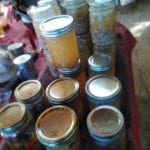
Just what are you anyway? Are you a “prepper?” Are you a “survivalist?” Maybe you consider yourself a “prudent-planner-aheader.” Are you a an “off-gridder,” a “plain person,” a “homesteader,” “back-to-the-lander,” “agrarian separatist,” a “foil-hatted bean-butter-and bullet buying whack-a-doodle”?? Are you planning for the end of the world as we know it? Maybe you are expecting major disruptions in services and utilities? Perhaps you foresee a disastrous and functionally systemic collapse? Could it be that you are just planning for a day or three without access to electricity, water, and ice?
I would have to say that the prepping and survival community is quite diverse. Those of us who have been doing this a very long time have learned to identify other types and genres of preppers and survivalists, and we also know the stages that most humans go through as they come to know (at different paces and levels) and recognize the true state of the world and the world’s systems.
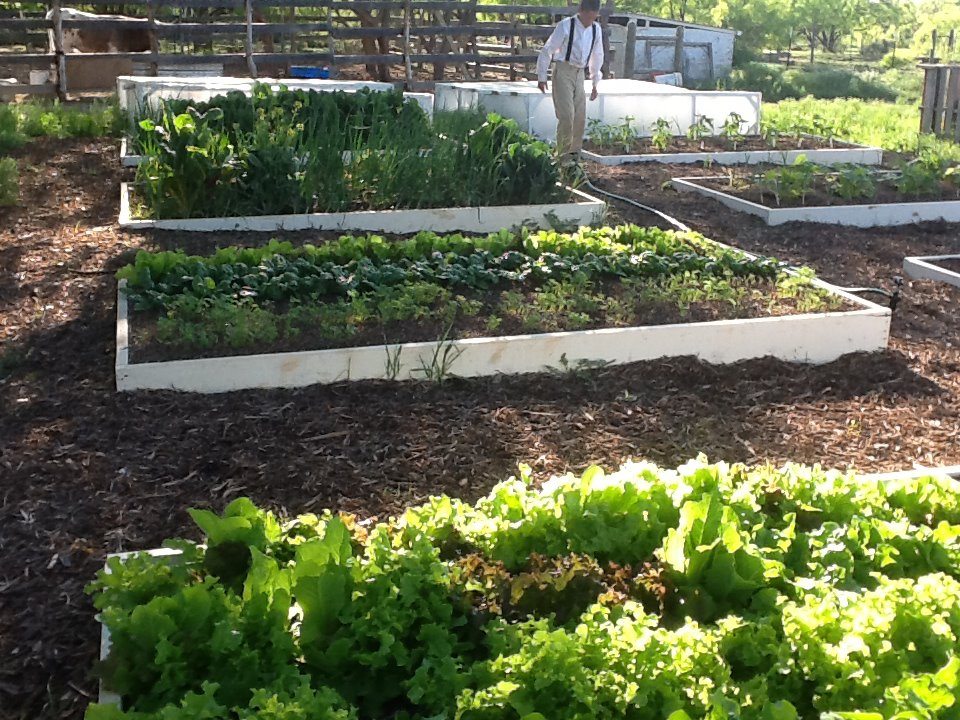
In my past I have taught wilderness survival classes, cold weather survival, hot weather survival, and for years now I have been blogging and writing about preparedness and survival topics. In 2011 I released my first non-fiction book on the topic of Off Off-Grid Living (living a plain, simple, and sustainable life separate from not only the industrial power grid, but independent from even the normal “off-grid” alternate grid of solar, wind, and generator power.) I have met, taught, learned from, and argued with people from every conceivable genre of survivalism and preparedness. Prior to 1997 I was more of a traditional survivalist kind of guy. My mindset back then was on preparing for disaster, and training for wilderness survival, escape, evasion, etc. In 1997 I bought my first 3 month supply of survival food, and from there my father and I embarked on a path of basic disaster preparedness (this was before I had ever even heard of Y2K!). In 1997 my small (at that time) family embarked on our first small homesteading experiment, and we began learning how to farm and raise our own food. In 2005 we moved to and started a larger farm in Central Texas, and into a community of like-minded “plain people” with the intention of living off-grid and learning how to survive like our ancestors did not too long ago. Since that time, I have become somewhat of a gadfly to the preparedness and survival community, constantly preaching and reminding folks that real freedom and real survival means that every day, our dependence on unsustainable and nonviable world systems of power and services must decrease.
Most people don’t have a clue how dependent they are on very sketchy and unreliable systems of life and living. In order to teach myself and my family, and to actually see how dependent we are, I have formulated and utilized quite a few self-tests over the years. In addition to our lifestyle of preparedness, production, and “offgriddedness”, we have constantly pushed ourselves so that we can get an accurate picture of our condition and where our susceptibilities lie. Beginning in 1998 we would turn off the power and water (at that time we still lived on-grid) for days at a time so that we could learn to recognize what were our needs. Whenever we studied and learned a new skill, I would make sure that we learned to first do it the hard way (the old-fashioned, off-grid way) so that we would know that we could accomplish that task if we needed to do it without modern conveniences. I was not satisfied to merely have the skills to butcher animals, grow gardens, and preserve seeds, etc. without knowing that we could do these things without grid power, county water, power tools, etc.
Seven years ago we moved and started our off-grid farm here in Central Texas, and we began to work our way towards a more complete independence from the grid. In my book Surviving Off Off-Grid I discuss the differences between traditional Off-Grid living, and Off Off-Grid living, along with offering advice and suggestions on how to accomplish sustainable and simple living without what most people consider to be necessary modern conveniences. Today we are able to grow and process almost all of our own food (we grow more independent every day), in fact, I took a break from smoking our own sausage in our own large, stone smokehouse so that I could get started on this article.
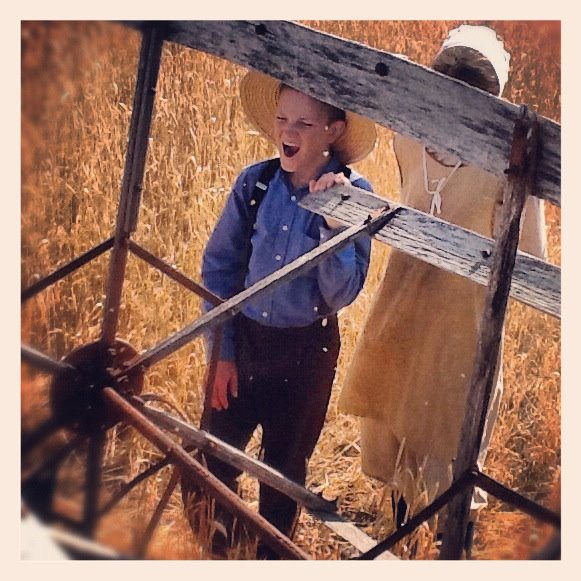
All of this is to say that – sometimes we need to be able to step back and take a larger view of what are our goals and intentions when it comes to our chosen lifestyle of preparedness, survival, or simple living. Often, because we get our advice from people who make a living selling marketing gear or information, we start on down a road that will not lead us to where we desire to be. I have often told my family that if you say you are going on a trek to Dallas, Texas, and you start off on the wrong road and heading in the wrong direction, you will likely end up somewhere else altogether. If you rely on commercially manufactured gear, supplies, food, and other preparedness items, then you may be better off than your neighbor, but in the long run you are still dependent on the manufacturers and suppliers of those things. If you work on the assumption that a particular disaster or scenario is going to run its course and that everything will one day return to normal (the normalcy bias), then you are going to find yourself in trouble if your assumptions about the disaster or scenario are not accurate. The bullets/beans/butter folks have a lot to offer, and they can certainly help you in situations where this return to “normal” (whatever that means) is expected. But, what happens if “normal” never returns? What happens to you and your family if the new “normal” is actually the old “normal” (the thousands of years of life on this planet prior to the last century+ of industrialism and consumerism)? In a very real sense, the last 150 years of industrialism and urban/suburban dependence has been an anomaly in the history of the world.

We all have biases. Generally when you meet an ex-military survivalist, there is going to be a bias towards guns, defense, and emergency or crisis survival. When you meet a wilderness survival guru, there is going to be a bias towards making it in the wilderness, and making it back home. If you speak to a middle-class urban or suburban prepper, you are generally going to find a bias towards stored consumer products, “survival” gear, food rotation systems, and what I call event preparedness. Very few of you (maybe a few) will have actually met or conversed with someone who lives like the Amish, Mennonites, or “plain people”. Every genre of survivalist has an opinion about the other genres, and is likely to see weaknesses in their worldview and philosophy. I have had the rare opportunity to have passed through almost all of these genres of preparedness, so, although I do have my biases based on my current worldview and lifestyle, I think I do have some insight that you might find of value. I share with you, then, an article I wrote for my old off-grid living blog. I hope you will find it helpful.
The 5 Steps of Survival and Prepper Maturity
You may have heard about the 5 Steps of Grief and Mourning. They generally go like this:
- Denial and Isolation
- Anger
- Bargaining
- Depression
- Acceptance
In like manner, many (but certainly not all, and probably not even most) intelligent and engaged people will pass through a similar process — beginning just after they first get an inkling that things are not right in the world; that they are in a perilous situation, and that their loved ones are in danger if something (anything) bad were to happen. The 5 Steps of Survival and Prepper Maturity are easily identifiable, and most people can easily see where they are in the process. Like in the 5 Steps of Grief, you only very rarely will be able to skip steps, and you will almost always deny that you need to move on to the next step. Preparedness psychology is an interesting thing, and I get the benefit of communicating with folks on these topics almost every day. One basic maxim of this truism is that people generally feel comfortable where they are and will think that everyone further down the maturity chart is “extreme” or “unbalanced”. This is the nature of vision and perception of reality. Everyone, on whatever level they find themselves, usually thinks that those behind them are deceived and foolish, and that everyone ahead of them on this path is extreme.

There is one other very important fact that we need to identify before we go into the list. All of these categories are actually levels on the scale that stretches from FULL-ON CONSUMER to PRODUCER. The first step in beginning the road to prepper maturity, is to admit that you are a probably a consumer. That is what governments and the world calls you. Just like an alcoholic has to admit that he/she is an alcoholic in order to get help, it is important for you to admit to yourself that, at some level, you are a consumer. A consumer is anyone who purchases most of his or her daily needs from someone else who makes those things. Unless you are in the .001%, then you are a consumer. Admit it now, and let’s move on. Consumption as a maxim of life is the bedrock of slavery. “Your consumption percentage” is also your slavery index number. You can read more about this (and take a slavery test) in my book Surviving Off Off-Grid, which is available on Amazon.com.
(An author note from way in the future… 2016: Two things I want to point out upon re-reading this for publication… 1. The more unprepared you are, the more arrogant you are about how unprepared you are. The more likely you are to say “I don’t care about that stuff” as if not caring and depending on government is somehow a morally superior position. When you are totally unprepared and criminally dependent, you are way more likely to make fun of people who aren’t willing to shrug off any responsibility they have to the safety and heath of their selves, families, children, or neighbors. As (or if) you move through the stages I list here, your total arrogance quotient goes way down with each step, because as you proceed you see how ignorant and dependent you really were in the earlier stages. 2. There is a stage before Stage 1. That stage is the “Sure, things could go bad but what can I do about it? I’m definitely not going to worry because, after all, isn’t this all someone else’s problem?” *See note on pre and non-prepper arrogance in #1.)
Stage 1: Buy it up and Store it up stage. Generally this is the stage when you refer to yourself (or consider yourself) a “Prepper.” After this stage, you would very rarely ever consider yourself a “Prepper.” Almost no one who proceeds beyond this stage ever calls themselves “preppers.” In this stage, you have become moderately aware of the tenuous nature of the world, environment, culture, society, economy, etc. You have begun to recognize your condition, and you realize it is not good. Since you have been raised a consumer, and have lived your life as a consumer, you automatically will default to consumer solutions. Result? Ack! There are dangers out there! GO BUY STUFF! This is the stage when you read everything you can find, and you make endless trips to the store to buy stuff that you think you will need. Your mind races and you dream of stuff you might need or that you haven’t purchased yet. You make lists, inventories, etc. There is a broad spectrum of Stage One-ers from the people who grab some extra beans, batteries, and band-aids and some candles, to people who add storage rooms to their houses, dig bomb shelters, and order in semi loads of wheat and rice. In this stage, you throw money at the problem. It is all you know, and it seems like a good idea. You convince yourself that you are better off than your neighbor, and that is mostly true. But know that you are only X days better than your neighbor. X stands for the number of real days (not imaginary numbers provided by powdered butter and survival food suppliers, but a more actual number) you are better off than your neighbor. You are a consumer like him, so you will most likely die like him… only you will die X days later. In this stage, your main goal is to increase X. This is also the stage for Go Bags, Get Out Of Dodge plans, etc. In this stage, you are usually deceived into thinking that you can survive because you are special, and you are better prepared than most, and because perhaps you think you can defend the stuff you have.
Stage 2: Dipping a toe into Off-Grid stage. Usually people in this stage don’t really go off-grid, but they start thinking about it, and they make some rudimentary steps towards off-grid thinking, if not living. In this stage an inkling you have turns into a realization. IF THE POWER GOES OUT, AND GOES OUT FOR LONG ENOUGH… I’M SCREWED. So you realize that store bought candles and cans of beans are not the solution. You need some alternative power, alternative light, alternative heating, etc. Perhaps in this stage you get a propane stove, a kerosene heater, some lanterns, etc. Maybe you even go all-in and get solar power, wind power, etc. Those on the extreme end of this phase will look into wood gasifiers for their vehicles, and generators… (HAVE to have generators!). In this stage you look back on your Stage One days and you say… “What a fool I was! Now, I’m better off. I can provide heat and light for my family after a collapse.” The overall angst and stress you feel about current events lessens a bit. You read the news without as much fear or excitement. You feel better, because you feel prepared. At this stage, you do not like being called a “Prepper” as much. You say, “Preparedness is a lifestyle I’ve adopted.” In this phase, a light has come on… just a faint one, but it lets you see in to areas that were once in darkness. You think, “If things last long enough, I’ll need to grow some food. I’ll need to learn some skills.” Maybe you take a class. Maybe you plant tomatoes, etc. At this stage, you LOVE talking about this stuff. You make prepper friends, and you spend a lot of time on the Internet reading news, and sharing ideas.

Stage 3: Plan for Some Alternate Future stage. In this stage, some Get Out Of Dodge scenarios really start to get serious. You have actually started gardening in your back yard, or perhaps you’ve started taking food production more seriously. You are learning some basic skills. You probably get some chickens, and stock up on animal feed. Then you start looking “out there.” Maybe you’ll start a survival retreat, or even look into moving into the country. Farming life starts to be attractive to you, and if not attractive, maybe necessary. Your interests now are more into old skills and old tools and you begin to ask yourselves how people did things 200 years ago. You begin to start recognizing that everything that is new is not great, and that people have become cripples to Industrialism, machines, consumerism, and comfort. You actually begin to sit in judgment on who you used to be, and how you used to think. You start to think that even if nothing happens catastrophically, perhaps being unsustainable, nonviable, and subject to perilous and idiotic government run systems is not a good idea. Though you may have always hated government, and though you may always have thought that everyone else is an idiot, you finally start to see that it isn’t government that is the problem. It’s not something, it is everything. The whole world system built on consumption, where people push buttons and turn wheels at meaningless jobs in order to make money so that they can buy products produced by less than 1% of people, stops making sense to you. Now you see that it isn’t about being prepared. That was just fear talking. Now it is about recognizing your former bars and chains. Now you sense that there is a way of freedom that you never considered, and even if it is hard work, it is preferable to the old life you lived back in the maze of consumerism.
Stage 4: The Off-Grid or “Able to Go Off-Grid” stage. In this stage you have begun to build and install back-up plans to your earlier consumption solutions. You actually buy hand tools and maybe learn to use them. You are canning food and learning about other ways of food preservation. You realize you cannot rely on the store, and that things may never get back to what you used to consider “normal”, so you start growing your own food and preserving it. You like the idea of “living off the land” and you learn techniques and tactics to make the land produce for you. You don’t make the big leap, because everyone more off-grid than you is “extreme”, but you make sure that you have fall-backs for all of your prepper plans and ideas. Now you’ve got goats, perhaps some pigs. You start to think of yourself as a farmer. You don’t just have solar panels, but you have actually studied how to provide light and heat without electricity. In this stage is usually when a small portion of maturing survivalists will move out to the country. Leaving the “grid” is no longer crazy. Some of you actually start a farm.
Although you probably still buy all your animal feed and food for your family from a store, you are thinking that producing more if it is a great idea. This stage is expensive. You have a foot in both worlds. You don’t have time to work full-time at your “job” anymore, so maybe your wife/husband works and you work part time. You have to do everything the expensive way, because your entanglements in the world give you no time to do things the ancient way. You rationalize and start noting how expensive everything is. You still don’t want to quit your job or separate more, because everyone more separate than you is “extreme”, so you straddle the fence. Many will stay in this stage until they fail, and then they’ll go back down the stages… maybe even all the way back. I call this stage the “dream-killer,” since the love of modern stuff, and the double-mindedness make this stage untenable for very long. It’s just too expensive. You must move on to Stage 5, or quit. Only those who have some extraordinary outside income, or who find a way to make an income from their farming that is sufficient to pay for the consumer stuff can continue in this stage. Also in this stage (and somewhat in Stage 3,) you will find your “millionaire survivalists. Millionaire survivalists, though they might not really be millionaires, have some source of adequate income that permits them to live and teach others while still living with a foot in both worlds. Millionaire survivalists, while some of them have a lot of good advice and skills, are difficult for most people to emulate. When you read most survival books or survival fiction books, you will run into millionaire survivalists who just happen to have all the money in the world to trick out old trucks and cars, buy expensive retreats, and own an armory that most third world dictators would envy. A lot of these millionaire survivalist books and materials are interesting and fascinating, but they are fully fiction for most of us. Unhappily, this scenario is just not doable for people who live in the real world.
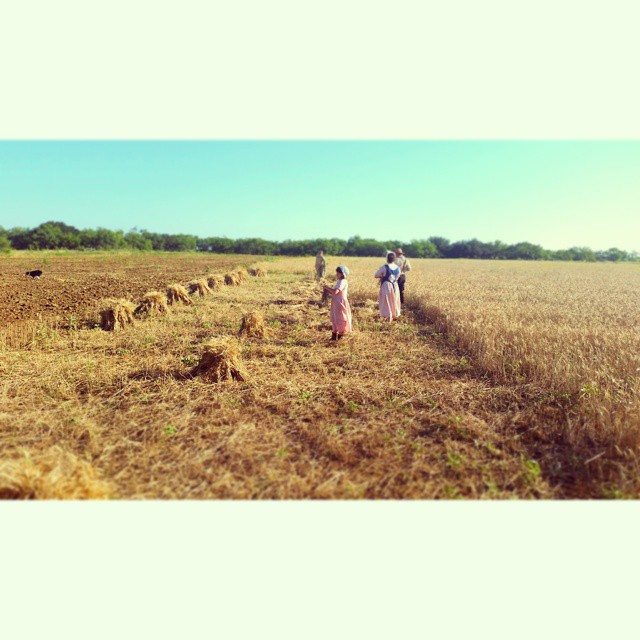
Stage 5: Off Off-Grid Living. In this stage, things have become crystal clear. You must produce to be free. The old system made a slave out of you, and you realize that the only way you can afford to be free, is to produce more than you consume. This takes a lot of work, but the very, very few who try it will say that it is definitely worth it. In this stage you don’t worry about power outages, work stoppages, or such things. What you cannot control, you do not worry about, but you do what you can. You produce most of what you consume. You are no longer waiting for things to “come back online” or “get back to normal.” Normal no longer means “the last 150 years of industrial/consumer living.” Normal now means, “all the millennia BEFORE the last 120 years.” You certainly are not living perfectly sustainably but you are definitely on your way. You find joy in the food you eat, and the work of your hands. You pity those that cannot see, but you recognize that you were once them, and without going through the process, they will NEVER see. You don’t sweat simple people who rationalize their dependence and charge you with hypocrisy if you don’t live in a cave wearing only clothing you knitted from your own wool sheep. You don’t blink when someone who is fully dependent on the store and the government tells you “Oh well, people with more guns and stuff will just come kill you and take your stuff, so we’re all the same.” You smile when people call you extreme, or argue that they are only further down the stages list because they are evangelists, while you are just a hermit – useful to no one but yourself and your family. You chuckle when people say that since you have a computer and get on the Internet that you are just as dependent as they are… plus you are a hypocrite! Your children don’t understand why anyone would ever eat most of the junk that people buy at the store. In this stage, you are amazed at how little it actually costs to live and be free. Your life slogan is SIMPLICITY, SUSTAINABILITY, and SURVIVABILITY.
So, these are the 5 Steps of Prepper and Survival Maturity. They can also be called The Steps that Lead to Freedom.
As you can see, I have my own biases, but I also have the experience of having been biased throughout all of the five stages of maturity, and I have learned that in whatever stage you find yourself, the real key is not what you have, but what you know, and knowing that there is still more to know. Perhaps there is a 6th stage out there that I haven’t yet discovered, but as for now, life is a continuous and daily education for me and my family.
Read more about Off Off-Grid Living and how it is expressed in a fictional post-collapse scenario in my book The Last Pilgrims, the first in a planned trilogy on living and surviving in a post-collapse world.
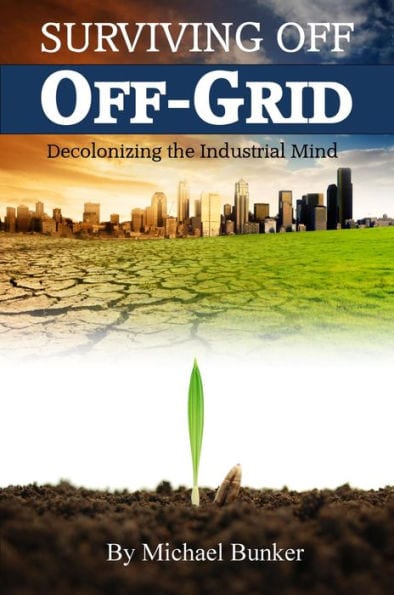

Hello Michael,
This was a great article. Articles like this help me to not loose focus on my eventual agrarian goals. I liked it so well that I closed my last blog post by recommending people check out this article of yours and embedded a link to it. Elections with electronic voting machines and corrupt candidates are not the way out of our moral, political, economic, and cultural mess. You have the way out, but most people will not even consider it.
I grew up in the country with a woodstove, so I had a jump on these things compared to an urbanite. I am currently at Stage 4 on your chart, except that I do not (yet) own farm animals. That is a future goal. This week I have been harvesting wild black walnuts from the many trees on our property -some free natural protein. Also, I tilled up my garden last week and sowed some oats to serve as “green manure”, a tip I got from Herrick Kimball’s blog “Upland”
I hope my blog link sends a few new readers your way. Keep up the great articles like this one!
Joe Putnam
Michael, excellent article. One of the best I have ever read on the subject. I appreciate the wisdom and experience you have shared. While I find myself as a stage 4ish gentleman, I do not see the jump to stage 5 as a necessary end state. I completely agree that if an event takes the world back to the old norm there will only be “X” days till resource exhaustion. The skills and resources learned and saved provide a slope as opposed to a cliff to the old norm. Just because the plain people are outside the standard loop will not prevent others from exploiting their resources. I also do not plan to part with some comforts in my life just because someday they may not be around anymore, I know better to depend on them. I do not view your life as extreme and hope that more people start to view the world and modern times as you do.